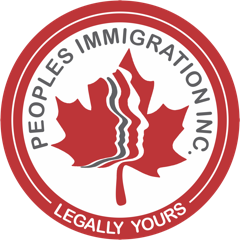Foreign nationals or permanent residents who have been detained by the Canada Border Services Agency (CBSA) for immigration reasons appear before the Immigration Division (ID) of the Immigration and Refugee Board of Canada (IRB) for detention reviews. TheCBSAmay detain, or hold, a foreign national or permanent resident,
if it has reasonable grounds to believe that the person:
- is unlikely to appear for an examination, hearing or removal
- is a danger to the public or
If it has reasonable grounds to suspect that the person:
- is inadmissible -that is, not allowed to enter or remain in Canada
The officer is not satisfied that the person:
- has established his/her identity
The person may be held in a minimum-security immigration holding centre or in a provincial correctional facility.
When theCBSAdetains a person, a detention review must be held to decide whether there is reason under theImmigration and Refugee Protection Act(IRPA) to continue detention. Within 48hours of detention, theIDwill review the reasons for detention. If the officer orders continued detention, the person will appear for another hearing before theIDwithin sevendays of the first review. TheIDholds further hearings at least once every 30days for as long as the person is detained. If the officerfinds that there is no longer a reason underIRPAto continue detention, then hemay order the person released. He may also order certain terms and conditions, such as posting a bond (a cash deposit).
Detention Review Hearing
While in detention, you have the following rights:
- You have the right to be represented by counsel at your expense or to receive legal aid, if you qualify. You have the right to be informed of the reason for your detention.
- You have the right to contact your embassy or a representative of your country’s consulate at your request.
- If you do not want a consular representative to be contacted, you can ask that the office of the United Nations High Commissioner for Refugees in Canada be informed of your detention.
- If you do not understand or speak the language in which proceedings are conducted, you have the right to be assisted by an interpreter.
- If you are a minor under the age of 18, or in the opinion of the Immigration Division of the Immigration and Refugee Board (IRB), are unable to understand the nature of the proceedings, a designated representative may be appointed to help guide you through the proceedings.
How is a detention review held?
The Immigration and Refugee Board member (the officer) will be in charge of your review. The minister’s counsel will present to the member some facts and evidence that will explain why the Canada’s Border Service Agency believes you should be detained. After theexplanation you will be given an opportunity to respond and explain your story as well as ask questions personally or by your counsel if you are represented. The member might ask you questions throughout the hearing. After hearing from both sides, the member will decide whether you will be released or remain in detention.
What are the factors the member (the officer) considers?
The two most common scenarios are that the officer believes the individual is a danger to the public or a flight risk.
If the person is considered a danger to the public,sec.246 of theImmigrationandRefugeeProtectionRegulationsstates the factors the member must consider:
- the person constitutes, in the opinion of the Minister, a danger to the public in Canada or a danger to the security of Canada;
- association with a criminal organization;
- engagement in people smuggling or trafficking in persons;
- a conviction in Canada for a sexual offence or an offence involving violence or weapons;
- a conviction for an offence in Canada under the Controlled Drugs and Substances Act for trafficking, importing and exporting, and production;
- a conviction outside Canada or pending charges outside Canada for a sexual offence or an offence involving violence or weapons;
- a conviction outside Canada or pending charges outside Canada for trafficking, importing and exporting, and production of controlled substances.
If the person is considered a flight risk, r. 245 of theImmigrationandRefugeeProtectionRegulationsstates the factors that the member will consider:
- being a fugitive from justice in a foreign jurisdiction in relation to anoffence that, if committed in Canada, would constitute an offence under an Act of Parliament;
- voluntary compliance with any previous departure order;
- voluntary compliance with any previously required appearance at an immigration or criminal proceeding;
- previous compliance with any conditions imposed in respect of entry, release or a stay of removal;
- any previous avoidance of examination or escape from custody, or any previous attempt to do so;
- involvement with a people smuggling or trafficking in personsoperation that would likely lead the person to not appear for a measure referred to in paragraph 244(a) of the IRPR or to be vulnerable to being influenced or coerced by an organization involved in such an operation to not appear for such a measure;
- the existence of strong ties to a community in Canada.
Outcomes of a hearing
In making a decision, the officer considers the information provided at the detention review –including your story and Canada’s immigration law.
If the member decides that there is nolonger a reason under Canada’s immigration law to keep you in detention the member will order your release.
The member may also order you to meet certain conditions, such as checking in regularly at a Canada’s Border Services Agency office for a period oftime, or paying a cash bond.
If you are ordered to remain in detention, you will have another detention review within seven days. If, after this second review, the member again orders your detention, the reasons for your detention will be reviewed again in 30 days and every 30 days after that, until you are released or removed from Canada.
You may ask for leave (or permission) of the Federal Court of Canada for judicial review of the decision.

